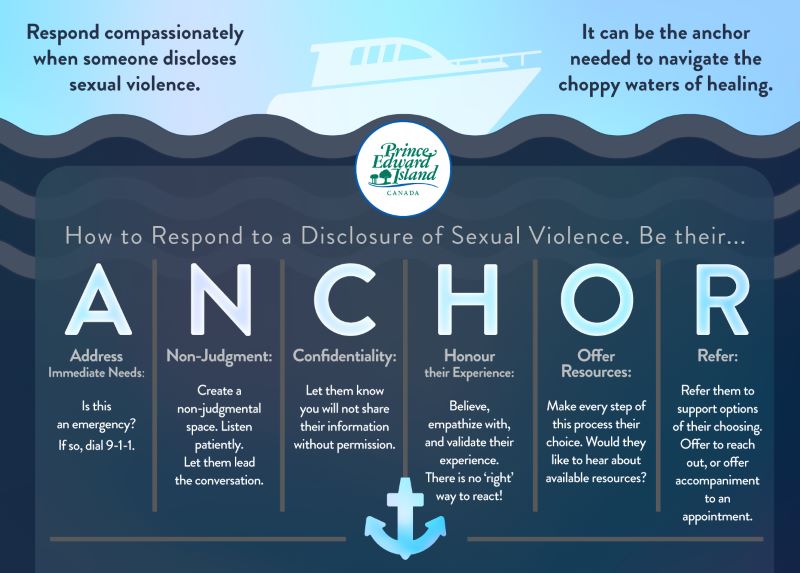Many survivors of sexual violence first seek help and guidance from friends, family, and partners.
When you respond in a supportive way after someone tells you they have experienced sexual violence, you are giving them the care needed to consider other forms of support. You do not need to be an expert to be helpful but learning more can empower you to offer the best response possible!

How to Respond to a Disclosure of Sexual Violence
Be their ANCHOR:
A – Address Immediate Needs: Is this an emergency? If so, contact 9-1-1. If not, what are their other immediate needs? (e.g. Medical care, shelter, food, etc.)
N – Non-Judgment: Create a non-judgmental space where they can express their needs by listening patiently, letting them lead the conversation and avoiding intrusive questioning.
C – Confidentiality: Let them know that you will keep their information confidential (i.e. not share what has happened to them without their permission). Their information is theirs to share!
H – Honour their Experience: Believe, empathize and validate their experience. There is no ‘right’ way to react to sexual violence. A validating response has the power to promote healing!
O – Offer Resources: Restore power lost by making every step of this experience their choice. Ask if they would like to hear about available resources. This might include counselling, Victim Services, reporting options and more!
R – Refer: Refer them to support options of their choosing. If they need help making the connection, ask them if they would like you to call. Offer to accompany them to an appointment if they wish.
